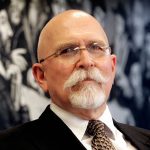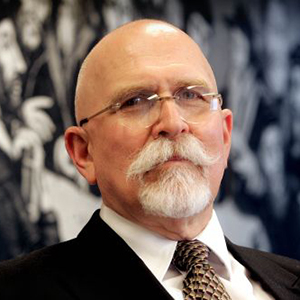I have had the high privilege and awesome responsibility of shepherding a flock of God for just under 33 years. In the course of that time I began to get a glimpse of the wisdom found in the Socratic statement, “all I know is that I do not know.” It’s not that I could not know; I could and should have—at least I could and should have known more than I did. But I didn’t. Over the course of time God’s gracious providences brought me to recognize that I was in desperate need to learn important principles pertinent to the pastoral ministry in which I engaged, and of which I was painfully unaware.
The first thing I need to learn is that I needed to learn. The fact that I completed seminary training or people addressed me as “Pastor” did not mean that knew it all.
The second thing I needed to learn is that I had to learn far more than five things, that the pastoral ministry is a life of constant learning—on every level. But I have been asked to share with you five things, no more, so I am going to limit myself to what I think are the five most pressing matters in my own life and ministry. I’ve chosen to discuss what I consider to be five core issues, each of which points to further necessary practical lessons relative to which I fell short and needed to improve. I make no claim to special insight. For some of you, these will be obvious truths because you will have already learned them. Accept what I have to say as a confession of my own frailty.
Trusting God
I needed to learn to trust in God. The pastoral ministry is extremely demanding—on many levels. Above all, it requires a sincere walk with God, high moral standards, and a good deal of self-sacrifice repeatedly expressed in self-denial. At the same time, the pastoral ministry requires the ability to lead with a Christ-like combination of firmness and gentleness, clarity and a lack of pedantry. It is often a thankless calling. Many will use you and, should you not meet their expectations, turn against you. Paul experienced this in Galatia, which brought him to say to the Galatian Christians, “I testify to you that, if possible, you would have gouged out your eyes and given them to me. Have I then become your enemy by telling you the truth“ (Galatians 4:1`5-16)? Other will use you and, once they believe you cannot profit them further, turn their backs to you. It is well to remember that one is called to serve, not be served.
I needed to learn to trust in God because I am no superman. I am merely a human being called by grace. It was my duty to trust in God to use me in spite of my failings, in spite of my shortcomings and in spite of my sins. I needed not—I was forbidden by the Scriptures—to present myself to the congregation as a know-it-all. Yes, I was called by God and, as one called, obliged to be faithful. But I was not called because I was worthy, certainly no more worthy than any in the congregation. No flesh many glory in God’s sight, nor glory before men. Not being numbered with the many noble or many wise, I was called by grace and, having called me, it was my duty to believe that God would also condescend by grace to use me. One important way He would do so is by me shepherding the flock, not lording it over them, but equipping them for the work of the ministry rather than forcing them into the role of yes-men.
In that context I also needed to learn that is was not all up to me. I could not and did not need to try to do it all. Paul reminds the Corinthians: “I planted, Apollos watered, but God gave the growth … He who plants and he who waters are one, and each will receive his wages according to his labor
According to the grace of God given to me, like a skilled master builder I laid a foundation, and someone else is building upon it” (1 Corinthians 3:6-8, 10) and that there was much that I could not do and should not presume to do. It is all in God’s hands: He saves. He sanctifies. He blinds or causes people to see. He alone gives the increase. What is born of the flesh is nothing but flesh. Unless those who hear are born from above, by the Spirit, they cannot see the kingdom of God. It was up to me studiously to avoid inappropriate pressure and all forms of manipulation, emotional, intellectual or social. It was up to me to trust God, preach the word of God faithfully and await the will and work of God and his timing—and His wise timing seldom matched mine.
Further, I needed to learn to trust God in adversity. The church has enemies from within and enemies from without. Sometimes I am my own enemy, at times, in spite my best conscious intentions, I might even be one of those. In spite of my weakness, failings and the ups and downs of the ministry, I was to trust, never succumb to the temptation to despair, never employ worldly means, never to water down the message. The fruitfulness of my calling was not to be measured in numbers. In fact, it was not to be measured at all. God in His faithfulness would not thrust me into a situation by which He does not intend to glorify Himself. I needed to learn to trust Him and recognize that it is not by my strength but by His, made strong through my weakness. I would often be afflicted in every way, but never crushed; perplexed, but never driven to despair; persecuted, but never, ever forsaken; struck down, but never destroyed; “always carrying in the body the death of Jesus, so that the life of Jesus may also be manifested in our bodies. We who live are always being given over to death for Jesus’ sake, so that the life of Jesus also may be manifested in our mortal flesh” (2 Corinthians 4:7-11). My ultimate calling was to live out the faith I preach, to preach it by my conduct, not merely from the pulpit. To that end I was not entitled to create a screen between my private life and the congregation. I was to conduct myself with maximal transparency so long as doing so would not adversely affect my family.
Trusting in God also meant that I should spend much time in prayer—more than I actually did. It meant that the prayer time during congregational and pastoral meetings was for more than a formality; it was an important—essential—part of our shared walk with God.
A Proper Sense of Priorities
I needed to learn priorities in church life. My primary task as a Pastor was to lead the church in fulfilling its own primary task, which is to place God in Christ above all, “that in everything he might be preeminent” (Colossians 1:18). Community life, family orientation, child and youth programs, theological correctness, evangelism, the physical and social needs of those around us—these and others are to varying degrees important matters, but none equals the glory of God. I had to learn to direct the focus of our church life on God, on loving and obeying Him, of placing Him in the center of our interests and at the fore-front of our congregational and personal priorities.
This meant that I had to learn to labor for the cultivation of informed, affectionate, obedient, enthusiastic and consistent worship of God in all that we did as a congregation and in all that each family and each member of the congregation did in their various walks of life.
My duty was to please God, not the people. I needed to be guided by what was best for the congregation, not what the members enjoyed most or demanded most vociferously. I needed to focus on consistent teaching and preaching God’s Word, primarily by way of an expository ministry, without shying away from theology or theological consistency, and therefore engaging from time to time in topical sermons, at times in series of such. I needed to cultivate in my heart and in that of the congregation a fascination with God’s word and a conscious desire to understand and obey it. Nothing more was to be expected of me or of the congregants, nor anything less.
To that end, heartful worship in prayer, song, and attentive listening to God’s Word had to become a central part of the church’s life. I was to labor to that end. I was to preach at a level that would inform and challenge the hearts of the people, never to entertain them, never to allow them comfort in their sins, never to rob them of hope and of a lively aspiration for more of God. I was to work hard at improving my preaching, and to make the pulpit the major part of church life. To that end I also needed to be open to criticism from all and any who cared to offer it, whatever might be their motive (In this regard, thank God for enemies! They are often willing to tell us what our friends are not willing; and often they are not willing because we are not as approachable as we ought to be).
In terms of priority, I needed to learn to put my family before the church. My primary calling was to be a husband and a father (in that order) and only then Pastor of a church. To that end I secured one day a week in which I was free of all church obligations. No one called me unless their house was on fire (in which case they would do better to call the fire department) and if no other elder was available. My wife and children had to know that, should they ever need me, I would be there for them and that there was a window each week when I was exclusively theirs. I would peel and chop vegetables while my wife cooked, and when the children came home I would have time with them.
I further needed to learn that the church comes before anything else except family. Conferences, opportunities outside the church, these were all well and good, but the Lord’s Day was to be devoted to the worship of God in the company of His people—one never takes vacation from being Christian. I, my wife and my children all needed to put the church before all kinds of other activities, including Christian activities, and I needed to teach that set of priorities to the church. Missions are to be done through the church. Giving is to be done through the church. Instruction is to be had primarily through the church. Counselling is to be conducted within a church context. God established no other organization but the church. His Word calls for no other framework of Christian activity. Therefore, all other such frameworks should be subject to the church.
The Importance of Faithfulness
I needed to learn the lesson of faithfulness. I was to be a guardian and promoter of God’s truth. I was to stand for the truth, the whole truth including those parts that are unpopular. To that end I needed to preach the whole counsel of God, and therefore through the whole of scripture, rather than dwell on my pet subjects. I needed to constantly study the truth so as to better understand it, and that meant reading broadly. I needed to stretch, to feed, train and exercise my mind no less than I needed to feed, train and exercise my heart. It was important that I be challenged as I read, so I also needed to read those with whom I disagreed. I needed to read a notch or two above my level of understanding so as to broaden it. I needed to be growing.
I needed to teach the truth, employing every legitimate means at my disposal, from the pulpit, in the course of home visitation, in personal counselling and in the conduct of both my family and the church. I needed to work constantly to keep ahead of the congregation in my understanding of God’s Word and in my ability to teach it because, if I was fulfilling my calling as Pastor, they constantly grew in their understanding, and I needed to be able to lead them on, ever on, to greater, warmer, clearer comprehensions of the glory of God in the gospel.
The truth needs to be lived out in practice. Among other things that meant that I needed to be willing to admit my mistakes and to correct myself, seeking grace to understand and to do better. It meant that I needed to cultivate my walk with God and to place the welfare of the church and its’ interests above my own. Sometimes that meant that I had to forgo a privilege, yield a legitimate pleasure or suffer real loss. But that was my calling. Faithful shepherds do not flee when wolves attack; they stand their ground. When war broke out in our country and an elder chose to leave with his family to safety, we asked for and received his resignation. He was never reinstated, although lovingly welcomed back.
I needed to beware of self-seeking, which can often masquerade in the form of heightened spirituality or sincere sacrifice. I dare not use the ministry to buttress my insecurities. God has harsh words to say to self-serving shepherds (Jeremiah 23, Ezekiel 34). In that connection, I needed to learn not to view every disagreement as a form of personal opposition, nor every opposition as personal affront. After all, its’ not about me; it’s about God’s honor, His truth and the welfare of His people. So, I needed to be willing to take a stand without promoting or defending myself, without being offended and without seeking to offend. I also needed to learn to deflect personal attacks, when they came, and to focus on the truth at stake; to be open to criticism by way of examining myself, not just hearing people out, smiling kindly and going my own way.
Finally, I needed to learn that my duty to God’s truth does not exceed that to God’s people. Somehow, we tend to focus on one or the other. Either we’re so strict about truth that we fail in terms of our duty to love, or we’re so determined to love that we fail in terms of our duty to the truth. I needed to learn to maintain the painful tension that often exists between the two, not to sacrifice either.
Honest, Daring Love
I needed to learn that, as pastor of God’s flock, it was my glad duty to embrace all of those whom God in His sovereign mercy chose to embrace. Some were nice; others were ornery. Some were wise; others were not. Some were strong; others weak. Some needed very little attention; others would sap up as much as I was able to give. Some agreed with me; many disagreed and were right. Some differed from me culturally, linguistically or even theologically. Some were Reformed; others were opposed to Reformed convictions. But they were all my brothers and sisters and many of them were my charge before the Lord. Many, thank God, differed from me in personality. But Christ died for them all and it was my duty to love them as firmly, as warmly and as sincerely as I knew how.
Loving others meant that I was to respect them, take into account their sensitivities and bear with their weaknesses. There were times when it also meant that I should challenge their errors and rebuke their sins, but it always meant that I should do so in a spirit of meekness, considering myself lest I too be overtaken by the same. I was obliged to hear them out and seriously weight their arguments. I was never to use subterfuge in the course of a disagreement and must never impose upon their consciences.
That meant that they had as much right to their opinions as I did to mine and, so long as they made a sincere case from Scripture in matters of principle, or from wisdom in matters of application, there was room for us to differ without compromise. We were still obliged to work things out, together. In consequence, I had to learn to proceed no farther than the congregation, or the elders, were willing to follow, and that there are instances when my wonderful ideas were rightly shot down. That is when I learned time and again that I lacked the patience that is the product of sincere humility. On the other hand, being the pastor I still needed to lead, and that was something I needed to learn too.
Part of embracing people had to do with caring about them, and that meant visiting them in their homes, welcoming them into ours and fraternizing with them and, as my wife repeatedly reminds me, I’m not very good in fraternizing. I do not enjoy chit-chat, but I needed—and still need—to engage in it sincerely. The Elders and I worked out a visitation program which ensured that each congregant received at least three pastoral visits a year. At every elders’ meeting we would report on those we visited, prayer over, discuss and consult with regard to each family and, should there be need, determine the course of any action that needed to be taken or support that needed to be offered. Where justified, we would refer the matter to the Deacons. Such action helped us sustain a sense of community and, at the same time, enabled us to become aware of needs and opportunities of which we would not have known otherwise.
Finally, each of the capable, mature families in the church were encouraged to adopt a widow, widower or single parent family so as to reach out and meet people in their areas of need.
Empowering Others
I needed to learn that my task as pastor was to cultivate, encourage and empower others. I was not to micro-manage everything or presume to be able to do it all myself. The church grows toward to the full measure of the stature of Christ by way of the contribution each and every member makes to the growth and welfare of the body, and the Spirit distributes such abilities to all for the benefit of the whole. My task was to search out those giftings, train them, equip them with responsibility, authority and the necessary tools, encourage their exercise and then leave ample space for such exercise.
I was called to supervise, set the general direction, pattern in practice the truths and the path we were to follow. I was not to give in to personal ambitions or try to keep individuals happy by according them responsibilities. I was not to purchase their support by preferring them over others. I was to teach gifted individuals that spiritual and moral qualities were by far more important than technical or managerial skills or what is known today as “leadership abilities.” It meant that I needed to dare tread over people’s prideful toes as frequently as I needed to push timid individuals forward. It meant that I needed to learn how to listen and to grant my fellow Christians the right to make mistakes because I was not the only one who had the right to do so.
Empowering others meant that their roles, responsibilities and authority are all clearly defined. Few situations emasculate endeavor and reduce initiative than the lack of clarity or the imposition of responsibility without authority, and many pastors are notoriously weak just at this point. Clear procedures needed to be presented, clear goals, ample means and a well-defined framework were all necessary for proper function, and proper function is necessary for proper growth. Just as muscles grow through exercise, so do human capabilities. My duty as a pastor was to labor for the maximal development of every congregant in every area of spiritual and moral endeavor. My task was to bring them as, as individuals, families and as a body, into the process whereby we are to grow toward the full measure of the stature of Christ. To that end I needed to warn every man and teach every individual in all wisdom to the end that I might present every individual mature in Christ Jesus. For that I needed to toil, struggling with all God’s energy, with which he powerfully worked in me (Colossians 1:28-29).
I can’t say I have learned these lessons, not even after almost 33 years of pastoral ministry. Remember—the subject of this talk is not “Five Things I Learned” but “Five Things I Needed to Learn.” I still do. Pastoring is a constant learning process because it is, ultimately, nothing more than becoming what all Christians ought to be in Christ, and that is something for which I continue to strive.
I am encouraged by the assurances of God’s Word and the sweet comforts of the Spirit. If you share my struggles, take heart. Our Savior will doubtless present us faultless before His eternal glory, because, ultimately, the pastoral ministry is all about grace—His faithful grace and kindness.
Eternally glorious God,
three in one and one in three,
holy, true, wise and happy through all ages
world without end,
we bow before your majesty and the majesty of our calling
and ask for grace to be what we are called to be.
We ask for grace to exemplify the gospel;
to reflect the beauty of Christ
and the power of the gospel;
to grow in all things toward the full measure of His stature
and to exalt You in the conduct of our ministries.
We ask this because we all know that we fail
and because we are aware of some of our failings.
O God of grace, glorify Yourself in us in spite of what we are.
Build Your church, and use us to that end,
and we will sing Your praises forever,
through Jesus Christ, Your Son and our Savior, Amen.
























